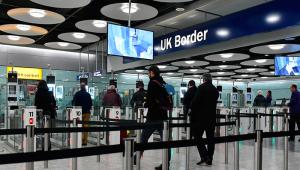Its report, The Cost of a Child, said the combination of inflation and the freeze on benefits had put family budgets under new strain, and would force parents to find between an extra 6-9% of children’s costs in 2019 against 2012.
Research for CPAG by Loughborough University’s Professor Donald Hirsch found benefits would have risen by 3% between 2012 and 2019 but prices by 12%.
Hirsch found that families in which both parents work full time for the NLW are 13% (or £59 a week) short of what they need to give their children a minimum living standard, calculated as the cost of goods and services related to children.
Lone parents working full time on the same wage were 18% short (£68 per week), double the equivalent figure for 2012.
CPAG chief executive Alison Garnham said: “Our research shows that the benefit freeze will mean that children will be the main losers with the return of inflation.”
Freezing benefits has meant that a 4% rise in the NLW this year has not prevented those dependent on it and tax credits from facing a growing gap between their income and costs, the report said.
The gap was even wider in non-working families where both couples and lone parents relying on benefits were about 40% short of the budget of the socially acceptable minimum:
Hirsch found the minimum cost of a child from birth to 18 (including rent, childcare and council tax) was £155,142 for a couple and £187,120 for a lone parent.
He said: “After a lull in inflation, the cost of essentials is once again rising. For the first time in post-war history, these cost increases are not being matched by increases in support given to families from the state.
“While this policy persists, the struggle that low-income families face to make ends meet will become steadily harder, especially because it is being combined with numerous other cuts including the benefit cap and the bedroom tax.”
Hirsch added that these cuts were “particularly painful for non-working families, who already have little over half what they need to cover family costs”, and for whom the ‘safety net’ of means-tested support “no longer merits this name”.




















